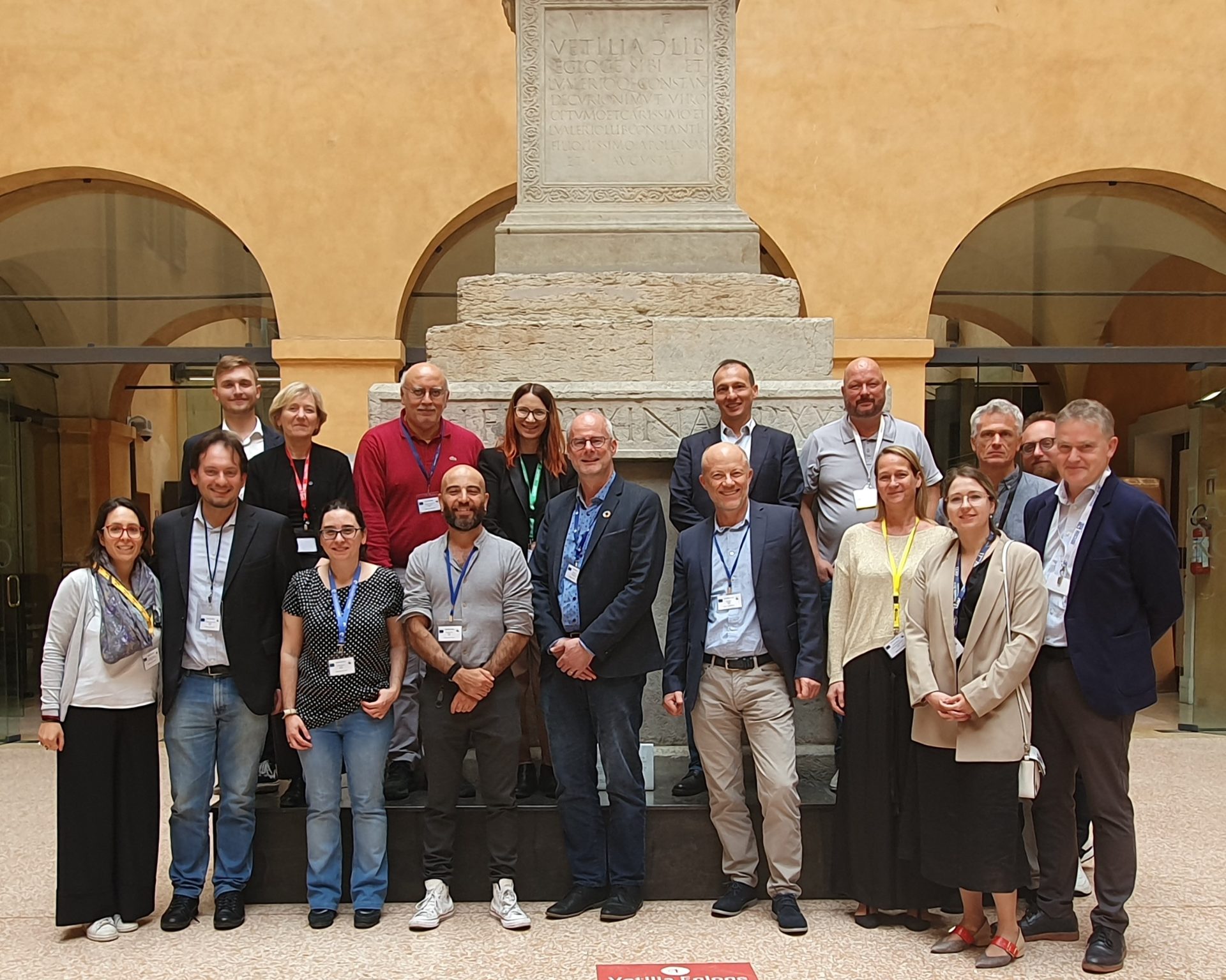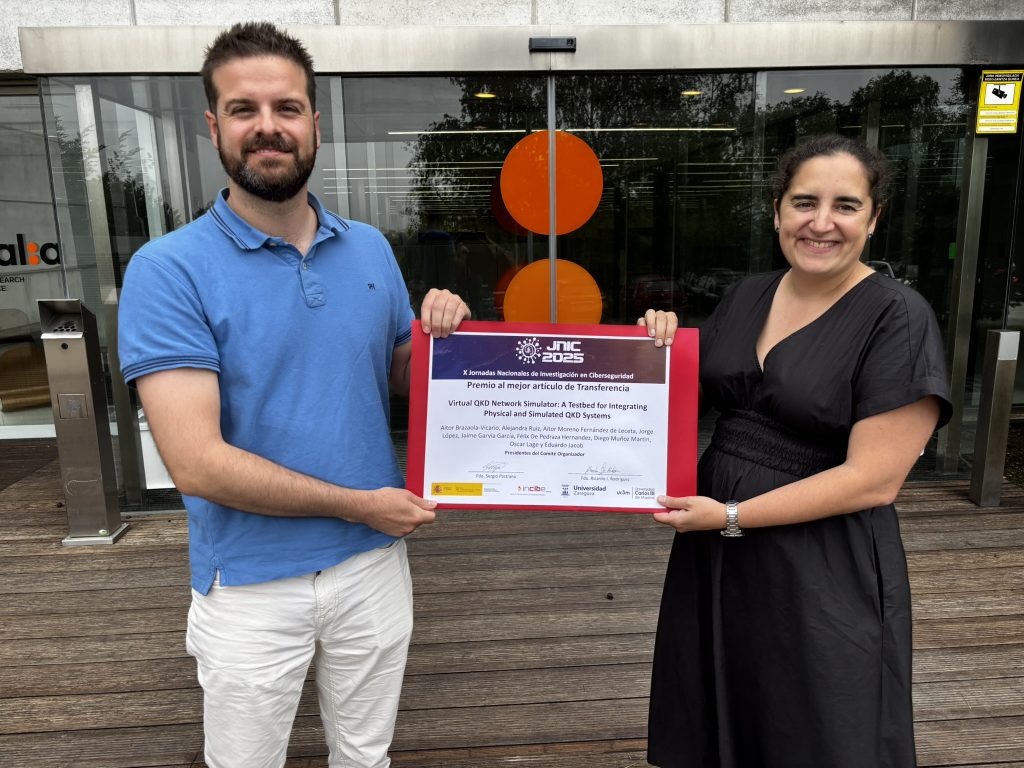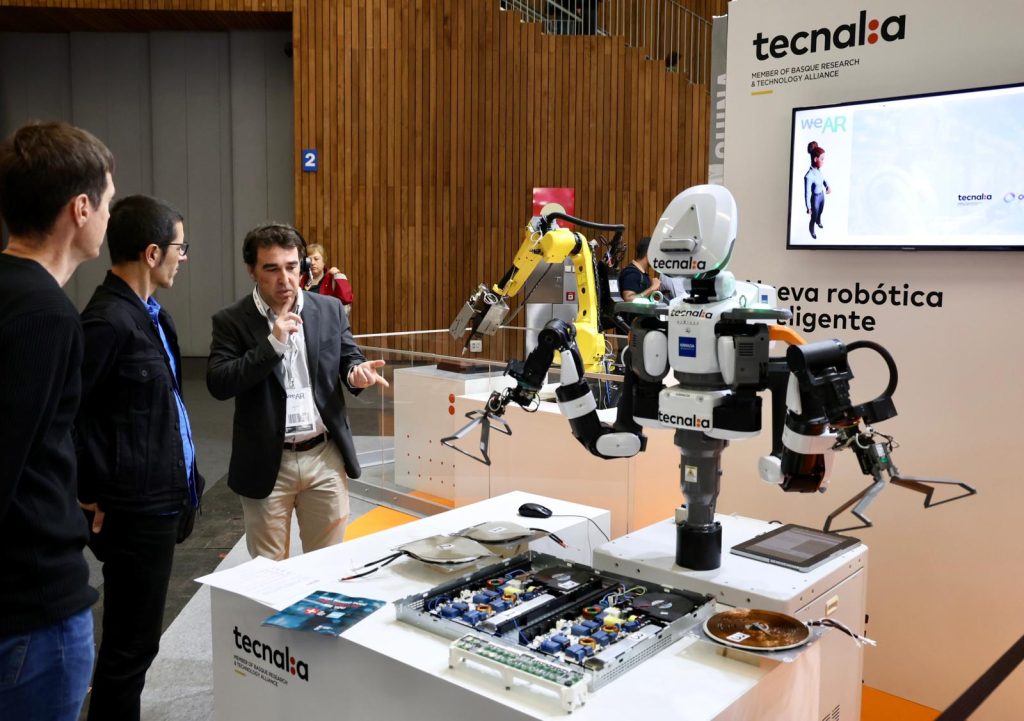"We hope to increase the diagnosis rate of patients affected by neuromuscular diseases by 30%"
AI helps doctors diagnose neuromuscular disorders
Part of our team of experts in neuroengineering and artificial intelligence; Michael Obach, Ainara Garzo and Kristina Stemikovskaya have met the rest of the partners of the CoMPaSS-NMD initiative, in which we use artificial intelligence, in Modena. Our goal is to help clinicians design personalised therapeutic pathways and diagnose neuromuscular disorders.
CoMPaSS-NMD - ComputationalModels for new Patients Stratification Strategies of Neuromuscular Disorders -is a project co-funded by the European Commission whose mission is to develop new, universal tools for more accurate and personalised diagnosis, monitoring and treatment of patients affected by inherited neuromuscular diseases. Using advanced clustering techniques, CoMPaSS-NMD will identify groups of patients with similar clinical characteristics. These pathologies often affect young people and can cause long-term disability and premature death.
The initiative, coordinated by Rossella Tupler, medical geneticist at the University of Modena, involves six clinical centres (biotech, ICT, AI, ethical and legal) in Italy, France, Germany, Finland and the UK, and four industrial partners (including TECNALIA), many of which are present in the framework of the European reference network for rare neurological diseases.
AI will provide accurate clinical diagnoses
The centres provide the multidimensional data (clinical, genetic, histopathological and magnetic resonance) that will be processed and used to identify groups of similar patients using computational tools based on clustering algorithms.
Consequently, we hope to launch the CoMPaSS-NMD Atlas platform, an AI-based application that will provide accurate clinical characterisations and diagnostics, with a strong impact on research in the field and on European healthcare.
This new work and the adoption of this multidimensional, patient-centred approach, is expected to increase the diagnosis rate of these diseases by 30% and promote effective action by European national health systems.







